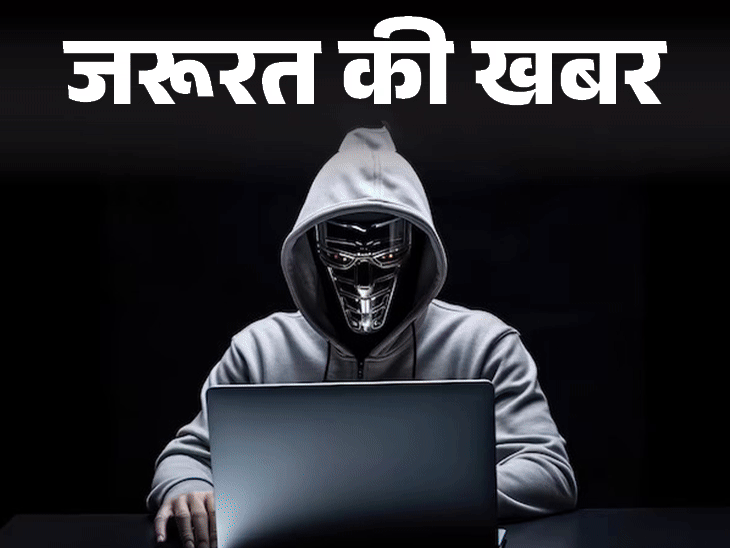On June 28, a message came on WhatsApp from a young man from Khedapa, Jodhpur, Rajasthan regarding the Prime Minister’s Kisan app. A link was also attached to the message, when the young man clicked on this link, his cell phone was immediately hacked. Within a short time, Rs 2 lakh 75,000 was deducted from the youth’s bank account.
The victim immediately lodged a complaint with the Jodhpur rural police cyber cell. The police immediately responded and froze the hackers’ bank accounts and withheld the money. After this, the police obtained a refund of Rs 1 lakh 57 thousand 100 from the victim through the court.
Another similar case came to light in Shergarh tehsil area of Jodhpur. Where a message arrived on a young man’s mobile, in which it was written: “Click here to join the Kisan Samman Nidhi program of the central government.” As soon as the link was clicked, a suspicious application was downloaded on the mobile. After some time, Rs 41 thousand 200 was withdrawn from the youth’s bank account. The young man immediately informed the police of the matter. The police were quick to get Rs 41,200 refunded to the hacker’s bank account on September 12.
Over the past few years, incidents of cybercrime have increased rapidly in Rajasthan. According to the Indian Cyber Crime Coordination Centre, cyber fraud worth Rs 165 crore was committed in the last 3 years, during which the police froze Rs 61 crore and returned Rs 9 crore to the victims.
so today news of need I will talk about how to identify fake apps or websites? You will also learn that-
What precautions should you take when receiving unknown links on mobile? How to recover money if you are a victim of cybercrime?
Expert: Rahul Mishra, Cyber Security Advisor (Uttar Pradesh Police)
Question: How do cyber thugs victimize people?
answer- Cybersecurity expert Rahul Mishra says that hackers can only hack your phone when you make a mistake because permission is required to hack any phone.
To hack your mobile, hackers first send a link via Facebook, WhatsApp message or email. In this link they promise huge discounts on any e-commerce site, benefits of government programs, earn money from home or loans at very low interest. When the user clicks on this link, a fake website opens or they are asked to download an application.
These phishing websites or apps are designed in such a way that they look absolutely real at first glance. Therefore, it often happens that even sensible users are deceived, but these sites are fraudulent and people become victims as soon as they enter their details there.
Question: How can we identify if a website is real or fake?
answer- Fake websites are created by cybercriminals to trick people. These sites are also called phishing websites. It is very important to check the online security of these websites and protect your phone from hacking. Before registering your details on a website, check a few things.
Understand from the graphic below how to check the authenticity of a website.
Question: What to do if you visit a fake website?
answer- Do not share sensitive information like your financial information, verification code, social media account password, mobile number or email id on any fake website. If you have any doubts about a website, go to Google Safe Browsing and report the fake website.
Google Safe Browsing protects users from fake websites and online threats.
Question: What are fake apps?
answer- Cybercriminals design fake apps in such a way that they usually look like legitimate apps. During installation, these apps request more access permissions than necessary, so hackers can access user data. Fake apps are developed for many reasons. Such as-
Malware installation: Through fake applications, scammers install malware in the smartphone, through which they steal user data (password, email, phone number).
Financial scam: By using fake apps, hackers can access user’s UPI apps and withdraw money from the bank account.
Identity theft: Fake apps can impersonate the user and blackmail them.
Question: How can we identify fake links sent by hackers?
answer- To identify hack links, look for keywords like .apk, .exc, .pif, .shs, .vbs at the end of the link. If the link ends with these keywords, do not click on these links at all. By clicking on it, you may become a victim of fraud.
Apart from this, never install apps like AnyDesk, Teamviewer, Airdrop on your phone or laptop through suspicious links. These are remote access applications, as soon as they are installed on the mobile, the control of the entire mobile or laptop passes into the hands of cyber thugs. They will then be able to monitor your activity. Can steal your data.
Question: Can money be returned if you are a victim of cyber fraud?
answer- Cyber security expert Rahul Mishra says if you have been cyber cheated, immediately file a complaint with the nearest cyber police.
Apart from this, file a complaint on the National Cyber Crime Reporting Portal or 1930. If the complaint is filed within 30 minutes, there is a possibility that the money will be refunded as the cyber team freezes first the bank accounts of cyber-fraudsters upon receipt of the complaint. If the cyber crook has not withdrawn this money from the ATM by then, they can be refunded. By delaying filing the complaint, there is little hope of getting the money refunded.

